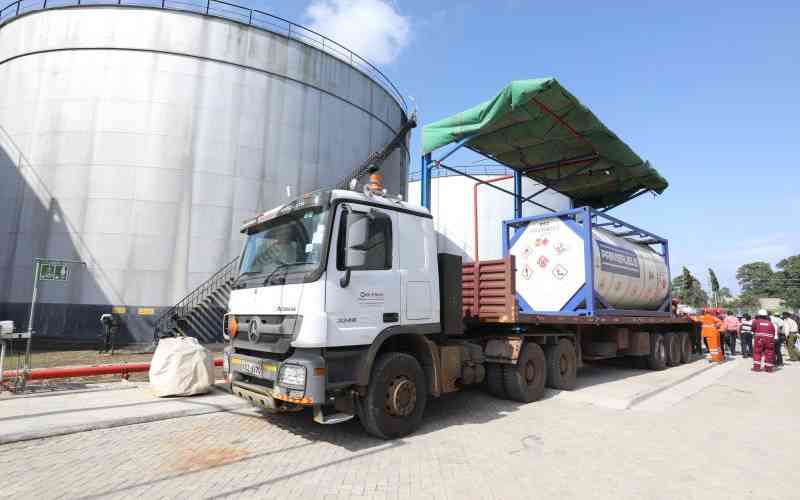A diesel dispute between Kenya and Uganda has sparked fears of rising fuel prices, shortages and economic disruption in East Africa.
At the heart of the issue lies a discrepancy between the declared amount of diesel imported by Uganda and the actual quantity that arrived at the Mombasa port in Kenya.
The Ugandan National Oil Company (UNOC) reported importing 65,000 cubic meters of diesel. However, Kenyan authorities discovered a significant difference upon inspection, with the actual cargo exceeding 82,000 cubic meters.
The discrepancy has led Kenya to impose a bond fee on the undeclared portion of the diesel, a move that has not been met with enthusiasm by Ugandan officials.
The potential impact of the dispute extends far beyond a simple trade disagreement. Ordinary citizens in Uganda could be the first to feel the pinch.
Kenyan bond fees could translate to higher prices at Ugandan pumps. This, in turn, would impact transportation costs, ultimately leading to an increase in the price of essential goods.
The ripple effect could be significant, squeezing household budgets and potentially hindering economic activity in Uganda.
Furthermore, delays in releasing the cargo due to the dispute could trigger fuel shortages. Such a scenario would be particularly disruptive for essential services like public transportation and emergency response.
Ambulances, fire trucks and buses all rely on a steady supply of diesel fuel to function. A shortage could create logistical nightmares and potentially endanger lives.
Businesses that rely on a steady supply of diesel, particularly those involved in transportation and logistics, also face uncertainty due to the standoff.
Delays in clearing the cargo could disrupt their operations and lead to missed deadlines. This, in turn, could damage their reputation and potentially lead to job losses.
The broader economic impact could be significant, especially for businesses that operate across the Kenya-Uganda border.
READ MORE:



